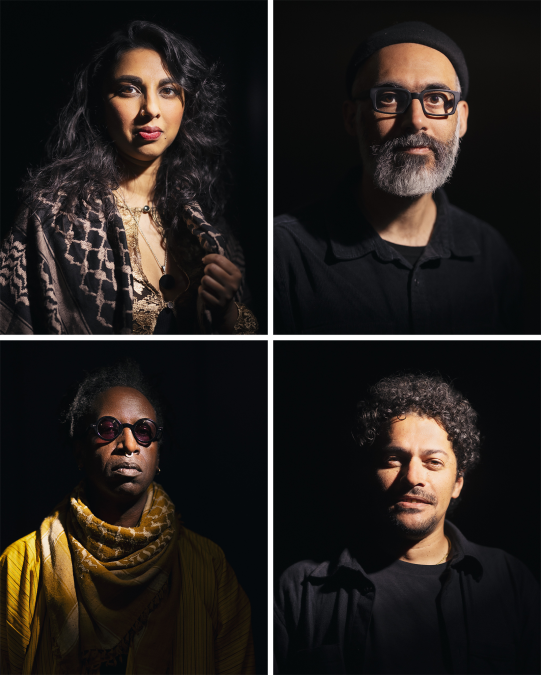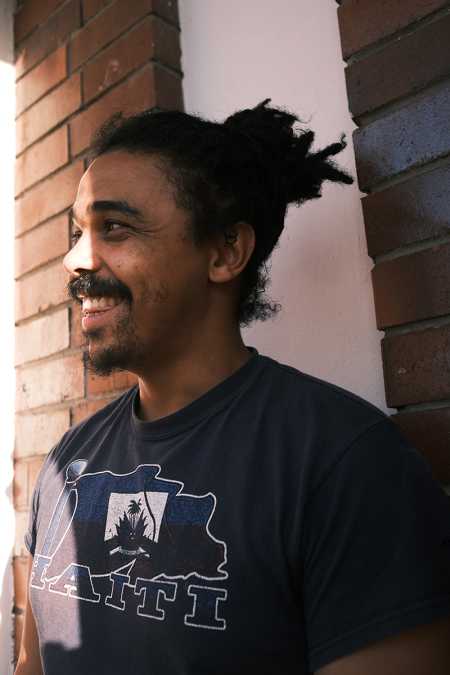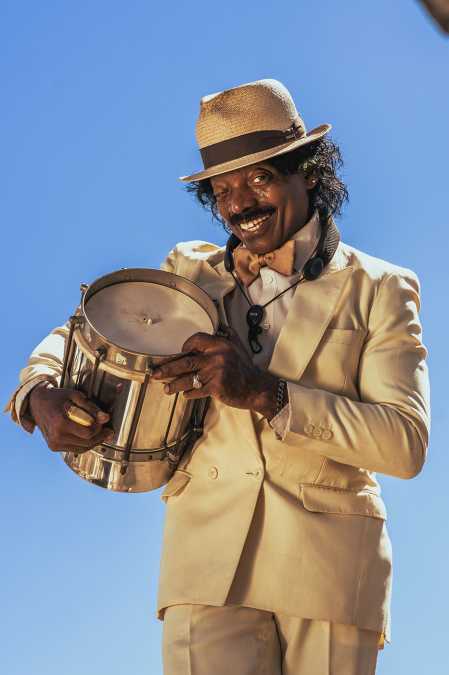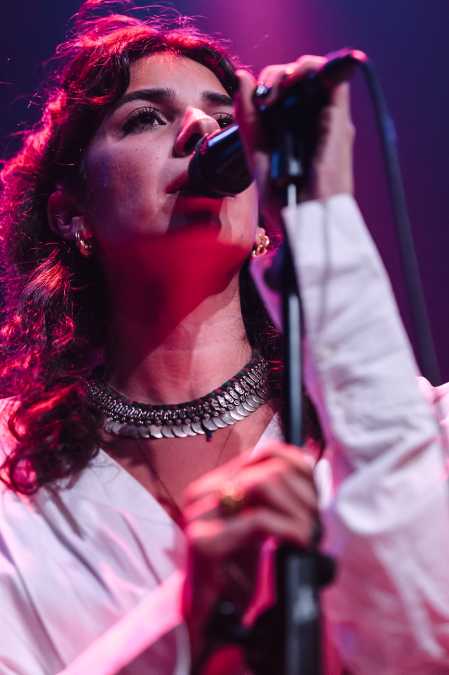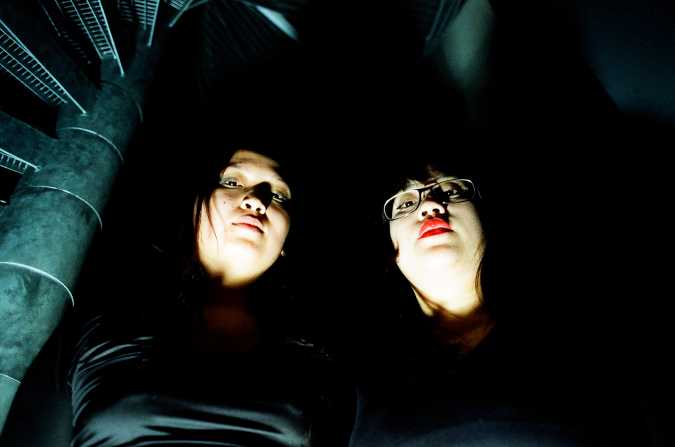Known for her relentless appetite for boundless experimentation, producer and musician Ziúr has always been subverting expectations, corkscrewing through hardcore, metal and punk before veering towards electronic music’s turbulent fringes. As a guest curator for Le Guess Who? 2025, her program spotlights bold, inspiring artists who have led the way and broken down boundaries, often against the odds. Spanning decades of musical history, the selection connects some of the legends who helped Ziúr see beyond her horizons and burgeoning innovators who are challenging the status quo.
Here, writer, editor and artist John Twells talks to Ziúr about the concept of home and how it fed into the creation of her new album Home (just released via Kuboraum Editions), as well as her upcoming curation at Le Guess Who?. To go along with the interview, Ziúr has prepared a visual playlist for her curated program; watch and listen below.
"The good thing about the English language," explains Ziúr, "is that you can cover a lot of ground with one word. German words are very precise." Her latest album is entitled Home, which is enticingly vague. "It's more fuzzy," she says, laughing. There's a good reason why she didn't choose to call it heimat, which can mean homeland, and has a very specific cultural meaning to Germans, or zuhause, which means at home.
Indeed, the idea for the project at first was to assemble an accompanying book where her network of friends could scribble down exactly what home meant to them. And since finishing the album, the word has taken on even greater weight. When we connect in Berlin, just 15 minutes' walk from Ziúr's own apartment, she's just returned from visiting her mother in the small village where she grew up. It's a place she's been reticent to mention publicly. For years, Ziúr has been cagey about her origins, preferring to search for global connection on 2019's 'ATØ', a call to action for a wide network of weirdos, or investigate historical escapist fantasies on 2021's 'Antifate'. Digging deeper into her autobiography was never on the cards, but, for one reason or another things changed when she began writing Home.
"I never felt like I belonged," she admits. "I was maybe a bit repelled by Germany." In 1992, Ziúr attended her first anti-Nazi demonstration, responding to xenophobic riots in Rostock, where a racist mob firebombed an apartment block housing asylum seekers. "I was 12, and then afterwards it kept piling up and up and up."
And on Im Bann Der Wehenden Fahnen (in the spell of flags waving), the album's central track, she sings in her native language for the first time. "Es ist die Säure die letztlich alles zersetzt," she cries assertively over pitch-bent piano notes and powdery industrial percussion. "Angekommen im Hier und Jetzt / hat sich der Menschenhass / bräsig ins eigene Nest gesetzt." She asked her friend Sam Wilder, an American poet and academic, to translate, and he provided a fitting English approximation: "The acid that devours everything finally / has arrived / human hatred / sluggish / coming home / to its nest." Ziúr is referring to the hatred that she asserts has long sat dormant beneath polite German society and uses the word nest, identical in both German and English, purposefully. It's a problem we share. "In the '50s and '60s, when everybody was nervous, they didn't want to talk about it any more," she says. "But now they want to talk about it again."

Immigration, or the right to a home, is a key issue in contemporary German politics, and the chilling nationalist agenda pushed by AfD, a radical populist party, has impacted the center, pulling the Overton window precariously rightwards. This won't be a surprise to many in Europe and the USA who have watched a similar shift, but in Germany there's been an assumption that there would always be resistance - it's a country that knows better than most where this line of thinking inevitably leads. And yet despite this, the culture is still insular at its core and often unwilling to evolve. While she was visiting her mother, Ziúr took the time to reconnect with two Syrian refugees her parents housed over a decade ago, and it only highlighted the issue. "I met them 10 years ago, but their German wasn't very good yet and their English wasn't good either, but now we really talked," she says. "They were amused by my perspectives, they said I was weird - I wasn't German. They have technically been integrated, but they never will be because that's the one fundamental problem with this country." Ziúr recognizes this aspect of German society implicitly. A trans woman, she represents socio-political concepts - differences, if you like - that terrify many conservatives; in Berlin she might be relatively safe, but outside of the city she has always been on the receiving end of prejudice and misunderstanding. Even behind closed doors, her home life has been a constant struggle.
"My father and I fought for 30 years," she reveals candidly. "Recently, he got very sick and through that process we realized many things. He had a story before me. I had never seen beyond our heads bumping together, and that's where it stopped." Her dad passed away earlier this year and Ziúr was beside him. "I've come to terms with it, I'm not bitter any more. I've cleaned it all out. I could give him stuff that was really hurting me - I kinda gave him a pass just knowing that he doesn't know better." Since then, she's spent more time in the village. The day-to-day attitudes still annoy her ("everybody is so ridiculously unfriendly that it hurts"), but she's been able to lean into her role and provide essential support to her mother. "It was funny to look at everything and all of a sudden not have that discomfort that I always had growing up there," she says.
"Hold me hello," she mouthes over Italian cellist Martina Bertoni's looped scrapes on the title track. "Hell be old tomorrow / you told me so we grow / from a sea of tears / dried up in sorrow." Ziúr talks about the idea of home generally, but the sense of catharsis is palpable. "We seek and build what we call our home / forever never alone." The use of language also loops back to childhood experiences. "I grew up liking English for the phonetic aspects of it," she says fluently, not sounding English or American, exactly, but not sounding German either. "I could perfectly sing a Guns 'n Roses track in '92 but I didn't know what I was saying, I could just aim." Even when the words fall away completely, like on the Ligeti-inspired All Odds No Chants, a collaboration with Elvin Brandhi and Sara Persico, Ziúr's voice carries the weight of lived experiences that swerve dangerously between dissonance and harmony. "When I started the project I intentionally stopped performing and stopped singing to find myself musically," she explains. "I had done that all my life, so maybe it was a step back. It was nice to hide behind equipment. But gradually it came back - now it's fully back."
These various themes are braided into Ziúr's curatorial choices for her program at this year's Le Guess Who? Not only will she be performing Home live alongside visual artist Sander Houtkruijer (aka Sandi), but she will bring along a selection of artists who bolster her unique artistic point of view. There will be a set from psychedelic folk trio Tristwch Y Fenywod, who sing in the Welsh language. "I thought they had this amazing Stonehenge vibes, witchy approach to things that I really liked," says Ziúr. "Dark energy or something like that? It's fascinating to me." Mexican singer-songwriter Luisa Almaguer, who blends pop, shoegaze and cumbia, will make her European debut and cult North London rapper Lady Lykez ("having her on the lineup made everything snap for me, I wanted a full-on powerhouse") will bring her battle-sharpened witticisms and unshakeable energy. A chaotic, surreal session from Dutch legend DJ Marcelle ("the very best DJ in the universe") will provide a chance to blow off some steam and Ziúr will also be debuting her collaboration with choreographer and dancer Kianí Del Valle entitled De Brujas Y Fantasmas. But the thing that really stands out is a set from one of Ziúr's childhood heroes, Iggor Cavalera, who will be playing for the first time with iconic Hungarian vocalist Atila Csihar.
"Iggor was how I even made it out of that village," she says. "There was me on the back of the school bus rinsing Sepultura. There were other things too, but that was just the reason why I'm still alive in a way, it gave me a new perspective. I felt alienated, but here was a little bit of hope I had from somebody else. Now, 30 years later I've met this person? And he's such a beautiful, curious, smart person. I see it as a full circle moment."
Ziúr's curated program at Le Guess Who? 2025 takes place on Saturday 8 November.
Words by John Twells
Photography by Kasia Zacharko
